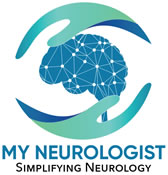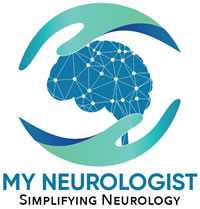What is myotonia congenita (MC)?
It is a disorder of skeletal muscles in which the affected muscles do not properly relax after contraction or stay hyperexcited resulting in loss or alteration of muscle function. Skeletal muscles are those muscles that we may control, like our hand muscles, or the muscles for swallowing or eye closure. In comparison, smooth muscles are the ones not in our direct control, like the muscles in our stomach. The term myotonia means abnormally prolonged muscle contraction, and the word congenita implies that its cause is genetic in origin.
What exactly is the cause of MC?
MC is considered a channelopathy, a malfunction of voltage gated chloride (ClC-1) channels on the skeletal muscle cell membrane. This defect is caused by a mutation of CLCN1 gene. A person may carry the abnormal gene and may not have symptoms or may have very little symptoms, which is called incomplete gene expression. On the other hand, another person with the same gene may have significantly more symptoms, as genes, for multiple reasons, are expressed differently in different people.
Are there different types of MC?
It is usually classified in two types: Becker disease and Thomsen disease. Becker disease is more severe and may lead to permanent weakness, while Thomsen disease is milder. Transmission of Becker disease is in autosomal recessive fashion, while the Thomsen disease is transmitted in autosomal dominant manner.
How common is MC?
Thomsen disease affects about 1 of every 25,000 people and the Becker disease affects about 1 of every 50,000. It is much more common in Northern Scandinavian population.
What are the symptoms of MC?
Main symptom is myotonia, which is the difficulty of relaxing a contracted muscle. This becomes an issue after swallowing as the throat muscles do not relax resulting in choking and gagging. It may cause clumsiness, unsteadiness or falls, as hand or leg muscle do not relax. There may be problem with opening eyes after their prolonged or forceful closure, like in a crying child. Regular activity and exercise usually help with symptoms.
What are the signs of MC?
Myotonia can be observed while the patient is asked to open and close eyes or make a fist or use some other muscle in repeated fashion. Sometimes, tapping on the muscle may trigger myotonia, a sustained contraction. Despite having problems with muscles, they do not look small or atrophied, rather they may look larger than normal.
How is MC diagnosed?
Usually, by its clinical features. There may be slight elevation of a muscle enzyme called creatine kinase or CK. Electromyogram may reveal myotonic discharges. Gene testing is the definitive test but may not be positive in every case and may not be needed for every patient. Its main role is genetic counseling for family planning.
How is MC treated?
Other than education and light exercise, many patients may not need any other intervention and may spend their lives without any significant issues. In some patients, a medicine may be needed but there is no cure. Mexiletine can be tried.
What is the difference between myotonia congenita (MC) and myotonic dystrophy?
In MC, the basic structure of muscle cells is visibly (under microscope) intact, and the biochemical fault is in the channels on cell membranes. In myotonic dystrophy, muscle cells are degenerated resulting in permanent and a different pattern of weakness. Additionally, myotonic dystrophy affects many other areas including glands, heart, and eyes.
What is the prognosis of MC?
Overall, for majority of adult patient population, it is reasonably good. It does not impact life expectancy but create difficulties with some physical activities.
Are any medicines contraindicated or should not be taken in MC?
Exposure to some medicines may make symptoms of MC worse. Some examples are as follows:
- Suxamethonium used for anesthesia.
- Adrenaline
- Beta agonists
- Beta antagonists
- Colchicine
Pregnancy may also make symptoms of MC worse.
Where may I get more information about myotonia congenita?
American Academy of Neurology
National Library of Medicine


Leave a Reply
Your email is safe with us.
You must be logged in to post a comment.